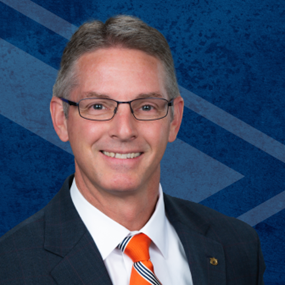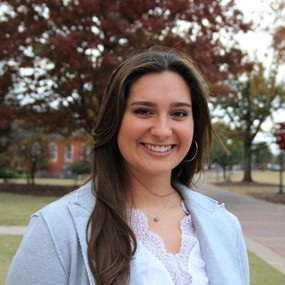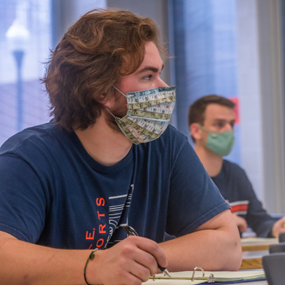Auburn psychological sciences professor researching how to predict, stop self-harm in people with eating disorders
One-third of people who struggle with an eating disorder will think about suicide, and one-fourth of people with anorexia and bulimia will attempt it.
Associate Professor April Smith’s latest study focuses on how to predict and prevent suicidal thoughts and actions before they occur in people with eating disorders.
“We know that there's a really robust relationship between eating disorders and suicide ideation and attempts, but we don’t have a good sense of why,” Smith said. “We don’t know what specific features of eating disorders predict later ideation, or what might lead somebody with ideation to transition to a suicide attempt. We’re hoping with this project to get at those fundamental questions.”
Smith, who directs the Research on Eating Disorders and Suicidality (REDS) Lab and co-directs the Auburn Eating Disorders Clinic, received support from the National Institute on Mental Health to study what predicts suicidal ideation and attempts in people with anorexia.
During the study, more than 200 participants who struggle with anorexia will wear technology that senses heart rate, emotional responses, sleep quality and more. Participants will also self-report their symptoms and emotions through an app.
For three weeks, Smith and her co-principal investigator, Associate Professor Cheri Levinson at the University of Louisville, will collect a wealth of individual data from participants in hopes to pinpoint under what conditions suicide ideation or attempt occurs.
“Research has shown that suicidality is a dynamic process,” Smith said. “People can start to think about suicide over the course of minutes or hours, and they can start to think about making an attempt again in short timeframes. If we're not able to capture those short time windows, then we're really missing out on potentially important predictors of that transition from not thinking about suicide to thinking about suicide and then to an actual attempt.”
Smith and Levinson’s team will use machine learning to create individual models of risk, or a pattern of behavior that predicts suicide ideation or attempt, from the data.
If the machine learning model is successful in predicting self-harm, Smith and Levinson’s research could help clinicians and individuals establish a real-time alert system to divert people with eating disorders from suicidal thoughts or actions.
“We think that we should be able to take these algorithms and put them in apps for clinicians or put them on smart watches for individuals,” Smith said. “These algorithms could then alert a person or their clinician that, ‘Based on what we know about your models, you're likely to start to experience ideation’ or ‘The symptoms you are experiencing right now suggest that you might be vulnerable to a suicide attempt.’ This in turn could hopefully avert suicide attempts.”
The NIMH’s $1.3 million grant to Auburn will support the time and wearable technology required to conduct the five-year study, which will include recruiting participants with anorexia and atypical anorexia.
Anorexia is characterized by low body weight and engaging in behavior to reduce body weight. Atypical anorexia shares those symptoms and associated risks, excluding a low body weight. The relationship between suicide risk and atypical anorexia is underexplored.
Smith hopes the results of the study not only improve clinical outcomes but raise awareness of the severity of eating disorders.
“I hope another outcome from this work is that people can appreciate that eating disorders are really serious and potentially deadly conditions,” Smith said. “But the good news is we also know the best predictor of eating disorder recovery is early intervention. If there are people out there who are struggling with an eating disorder or know somebody who is, early intervention is really the key because otherwise, as the research shows, these can be quite serious and even deadly.”






